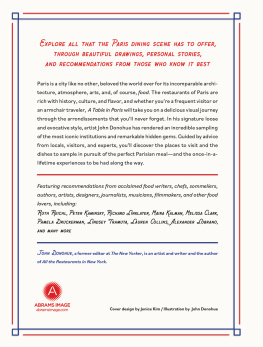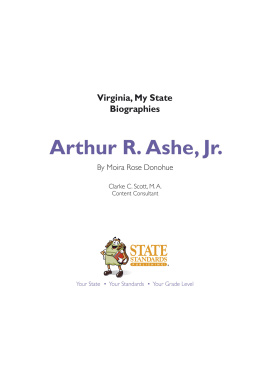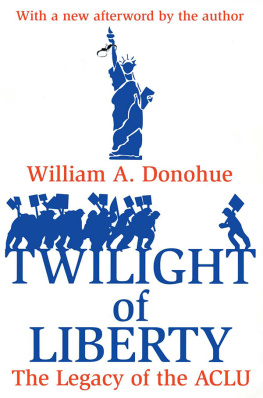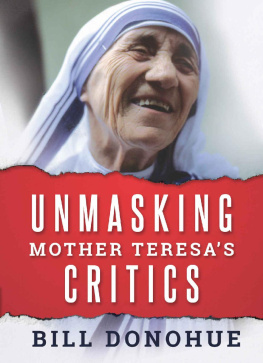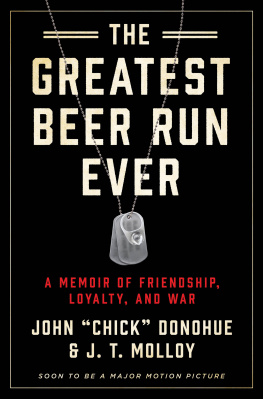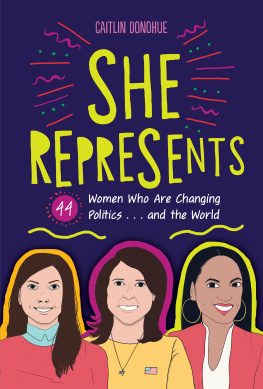John Donohue - Man with a Pan
Here you can read online John Donohue - Man with a Pan full text of the book (entire story) in english for free. Download pdf and epub, get meaning, cover and reviews about this ebook. year: 2010, publisher: Algonquin Books, genre: Home and family. Description of the work, (preface) as well as reviews are available. Best literature library LitArk.com created for fans of good reading and offers a wide selection of genres:
Romance novel
Science fiction
Adventure
Detective
Science
History
Home and family
Prose
Art
Politics
Computer
Non-fiction
Religion
Business
Children
Humor
Choose a favorite category and find really read worthwhile books. Enjoy immersion in the world of imagination, feel the emotions of the characters or learn something new for yourself, make an fascinating discovery.

- Book:Man with a Pan
- Author:
- Publisher:Algonquin Books
- Genre:
- Year:2010
- Rating:4 / 5
- Favourites:Add to favourites
- Your mark:
- 80
- 1
- 2
- 3
- 4
- 5
Man with a Pan: summary, description and annotation
We offer to read an annotation, description, summary or preface (depends on what the author of the book "Man with a Pan" wrote himself). If you haven't found the necessary information about the book — write in the comments, we will try to find it.
John Donohue: author's other books
Who wrote Man with a Pan? Find out the surname, the name of the author of the book and a list of all author's works by series.
Man with a Pan — read online for free the complete book (whole text) full work
Below is the text of the book, divided by pages. System saving the place of the last page read, allows you to conveniently read the book "Man with a Pan" online for free, without having to search again every time where you left off. Put a bookmark, and you can go to the page where you finished reading at any time.
Font size:
Interval:
Bookmark:
My wife, Sarah, and I have an open relationship. She opens the refrigerator to take things out, and I open it to put food in. I do almost all the cooking for her and our two daughters, Aurora, age five, and Isis, age three.
I was cooking long before I became a parent, mostly because Ive always loved to eat. Maybe love isnt the right word. It doesnt quite capture the passion, the devotion, the fear, and the panic that I associate with food. Tall and thin, with a type A metabolism, I am constantly hungry. People marvel at how much I can pack away without gaining any weight. I marvel that people can skip breakfast without collapsing.
My mother was born in Ireland, and I am descended from Potato Famine survivors. Its hard to imagine how anyone with my skin-and-bones frame and insatiable appetite could have lived long enough during those terrible years to pass on his genes. My direct ancestors must have been ruthless or brilliant to have avoided starving. Im neither tough nor all that smart, so I have no idea how the genetic code that required me to eat two deli sandwiches a night as a teenager (and that compels me to eat a meal before going to a dinner party at a friends house) managed to endure. I sometimes think, on those rare occasions when Im full, about how rich I would be if I wasnt spending so much money on food. I dont like to ponder how much I might have accomplished in life if I wasnt always eating or thinking about what to eat next. Id get depressed if I considered those things for long, but I dont have the timemy hunger returns like clockwork.
Some cooks use a lot of equipment to make a basic meal. When I first started cooking for my family, no one used more gadgets and crockery than I did. Back then, to prepare a roast chicken, baked potatoes, and a head of broccoli, I needed to reach for a cutting board, a chefs knife, a roasting pan, and a steamer, typically, along with a colander, a whisk, a slotted spoon, a set of measuring spoons, a spatula, a four-quart saucepan, an eight-quart saucepan, a baking pan, an aluminum pie dish, silicone-coated tongs, three recycled thirty-two-ounce yogurt containers, four pot holders, five Pyrex ramekins, a Vacu Vin wine pump, and one rubber toy giraffe. My recipes didnt require any special equipment, but my company in the kitchen at the time did; Isis was often looking over my shoulder, or I should say ankle, as I worked.
To keep her entertained, I offered her every dull-edged tool within my reach. She was less interested in the Technicolor stacking blocks, glow-in-the-dark teething rings, and myriad other plastic toys (vibrating, blinking, or otherwise) in the next room than in what I was doing. I washed, chopped, and sauted as my daughter teetered about, investigating the pots, pans, spoons, and other implements I tossed her way. During those preverbal days, when Isis was around, I wasnt just a cook; I was a juggler and a mime. Never mind a messy counter: the floor was an obstacle course. When I was finished cooking and Isis was finished playing, I often had to wash everything, twice. Our kitchen would have been the cleanest in Brooklyn except that Isis kept licking everything.
Before Sarah and I had kids, I did most of the cooking. Or wed cook together. Or wed eat out. Or wed go hungry. New parents always marvel at all the time they wasted in their lives before children came alonghow they cant remember what they did with those empty Sundays, to say nothing of the vacant mornings and evenings all week longbut I really have no idea what I did before our kids were born. For all I know, we were feeding each other figs and strawberries while lounging on divans. Postmarriage and prekids, it was a heady time of easy freedom and grand plans. Sarah and I came of age after the first wave of feminism. We were swept away by the idea of equal opportunity for the sexes. When we got married, we assumed that wed split the responsibility of running a house. Sarah devoted herself to her career as a filmmaker, and I devoted myself to artistic pursuits.
I saw this arrangement as a real bargain. With Sarah working, I would not grow up to be like my dad, who had worked day and night as a lawyer while my mother worked day and night at home taking care of five children. With Sarah working, I figured I could avoid growing up at all. Her income would relieve me of worrying about paying a mortgage or saving for college tuition. I would not have to strap myself to the career ladder to hoist my family into the upper middle class. It was all going to take care of itself, or so I thought. And for a while, it did. With Sarah doting on me, I discovered talents I didnt know I had. I started drawing and painting. My artistic career flourishedI soon started selling cartoons to the New Yorker and other publications.
Then we decided to have children. I was at home for the first three weeks after Auroras birth, whipping up potatoes au gratin, roast leg of lamb, and Bolognese sauce for my wife and my firstborn, who at that time was breast-feeding nicely. After I went back to my job as an editor, we started to frequent the fancy restaurants in our Brooklyn neighborhood. Aurora would sleep on my chest in the BabyBjrn as we dined. Or at least that was the plan. Shed often wake just before the entres arrived, and we ended up spending a lot of money picking wasabi and bread crumbs from her hair while bouncing her on one knee or walking with her outside the restaurant to keep her from crying.
One brisk spring night, in search of a more affordable option, I led Sarah to an Austrian pub that Id just read about in the paper. It was about twenty blocks from our house, but walking that far seemed easier than figuring out what to cook at home. The restaurant was crowded with attractive young people whose smiles and laughter and glow all said one thing: Were carefree and having fun. I sat in a drafty corner with Aurora strapped to my chest. She started to wail. The food came and went.
On the way home, I was angry and dissatisfied, and I had two realizations. The first was that I didnt care for schnitzel. The second was that my life wasnt working. Wed gone to the restaurant because the refrigerator was empty. Dining out was supposed to be rewarding and convenient, but I was still hungry, short on cash, and miles from home. Looking down at the cold bluestone of the Brooklyn sidewalk, I realized that if I wanted a good dinner when I got home from work, it was going to be up to me.
There didnt seem to be any choice. Sarah was not interested in cooking or planning meals. It hadnt yet occurred to me that I should be doing it. No one was doing it in our household. I wasnt happy with this realization. I was enraged. Enraged to come home from work and stare at an empty refrigerator. Enraged to have to wield a spatula after a long day at the office.
Then we had a second child, Isis, who, unlike her older sister, had trouble sleeping for more than a few hours at a stretch. We became exhausted, emptied, spent, consumed entirely. We were operating on four hours of sleep a night. Our personalities shriveled. My reading comprehension dropped to that of a one-eyed crocodile. Nothing worked to get Isis to sleep better. Out the window went my second career as a cartoonist, Sarahs fragile prospects as a filmmaker, and all semblance of civility. Waking night after night at 3:00 a.m., Sarah would get out of bed cursing like a drunken David Mamet character. I learned a few choice phrases and started to reply in kind.
Distraught from a lack of sleep, troubled by Sarahs anger, and dodging thoughts of our financial instability, I ducked into the kitchen. I went in a coward and I came out a conquering hero. Night after night, when I whipped up something delicious that pleased Sarah and fed Aurora and Isis, I felt like I was doing something so right that I couldnt possibly go wrong. Sarah would occasionally roll her eyes when I told her I was making a three-hour beef
Font size:
Interval:
Bookmark:
Similar books «Man with a Pan»
Look at similar books to Man with a Pan. We have selected literature similar in name and meaning in the hope of providing readers with more options to find new, interesting, not yet read works.
Discussion, reviews of the book Man with a Pan and just readers' own opinions. Leave your comments, write what you think about the work, its meaning or the main characters. Specify what exactly you liked and what you didn't like, and why you think so.

